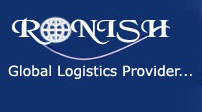
Car clearing cost in Nigeria through Nigerian ports are more than just paying customs duty. From import duty to terminal handling charges (THC), value-added tax (VAT), and even bank “sure fees,” a wrong calculation can turn your dream ride into a financial nightmare. This post unpacks every kobo you’ll spend and shows practical hacks to keep costs down while staying compliant with Nigerian Customs Service (NCS) regulations.
Why You Should Care About the Real Cost
Customs is no respecter of intent. An oversight in duty amount can ground your car at the port. Knowing the full bill upfront lets you bargain better with shippers, avoid demurrage, and budget realistically.
Understanding Car Clearing Cost in Nigeria
The car clearing cost in Nigeria is the total cash outlay required to lawfully remove a foreign‑purchased vehicle from a Nigerian port into free circulation. It is calculated using:
*Actual figures vary with Forex, vehicle size, port, and policy circulars.
Essential Documents & Typical Timeline
- Bill of Lading (BL) – shows ownership & port of discharge
- Tax identification number (TIN)
Average clearance time (with trusted agent): 5–7 working days. Add days for public holidays and server downtimes.
Fee‑by‑Fee Breakdown
Import Duty & Levy
Current passenger‑car duty is 20 %.
VAT & Surcharges
Nigeria’s VAT is charged at 7.5 % on the sum total of CIF, duty, 7% Surcharge, 1% Admin fee, 0.5% ETLS and, not on CIF alone. This surprises many first‑time importers.
Port & Shipping Charges
- THC (Tin Can/Apapa): As per outlay
- Storage/Demurrage: free days (3–5); thereafter (As per outlay)
Key Components That Make Up Car Clearing Cost in Nigeria
- CIF Value – Cost, Insurance & Freight at Nigerian port rate.
- Customs Exchange Rate – Adjusted weekly by CBN; higher rates inflate duty instantly.
- Vehicle Age – This varies
- Engine Type & Cubic Capacity – Higher CC or hybrid systems can alter CET codes.
- Port Congestion Level – Peak‑season surcharge (PSS) pushes THC upward.
- Agent Professional Fees – As per outlay
Smart Ways to Reduce Your Car Clearing Cost in Nigeria
- Time Your Import outside peak shipping months (Sept–Dec) to dodge port congestion surcharges.
- Use Ro‑Ro for SUVs if dimensions allow; it’s cheaper than containerised shipping.
- Bundle Multiple Cars in One Container—shared THC and other fees.
- Pay Duty Early to beat Forex spikes: Customs uses exchange rate on payment date.
- Hire a Licensed Agent—avoid costly amendments and storage fees triggered by DIY errors.
Common Mistakes That Inflate Costs
- Undervaluation: Leads to re‑assessment, penalties, and longer storage
- Wrong HS Code: This depends on the nature of the vehicle.
- Partial Documents: Unavailability of telex release.
Frequent Questions About Car Clearing Cost in Nigeria
Q1. How is the CIF value decided?
It’s based on NCS reference database (Blue Book). Customs may uplift value if invoiced price looks suspicious.
Q2. What if my car stays beyond free‑storage days?
You’ll pay demurrage daily.
Q3. Are clearing agents compulsory?
Legally no, practically yes—only licensed agents hold Customs access cards. Self‑clearing is rare and error‑prone.
Q4. Can I clear through Cotonou and drive in?
Yes, but you must still pay Nigerian Import Duty at the border under ECOWAS Transit rules, or risk seizure.
Don’t Let Your Dream Car Rot at the Port — Let Ronish Nigeria Limited Handle It Right the First Time!
Car clearing in Nigeria is not guesswork — it’s a high-stakes calculation. One wrong step and you’re paying demurrage, facing Customs queries, or losing money to FX spikes. At Ronish Nigeria Limited, we don’t just clear cars — we shield your investment with expert handling of every fee, document, and customs rule.
✅ Transparent cost breakdowns
✅ Licensed Customs agents
✅ Zero hidden charges
✅ 5–7 day average clearance
✅ End-to-end updates until keys hit your hand
Whether it’s Tin Can, Apapa, or PTML – we know the terrain. Don’t gamble with your hard-earned money or leave your car at the mercy of port bureaucracy.
Contact Ronish now — your car deserves a stress-free entry into Nigeria.
